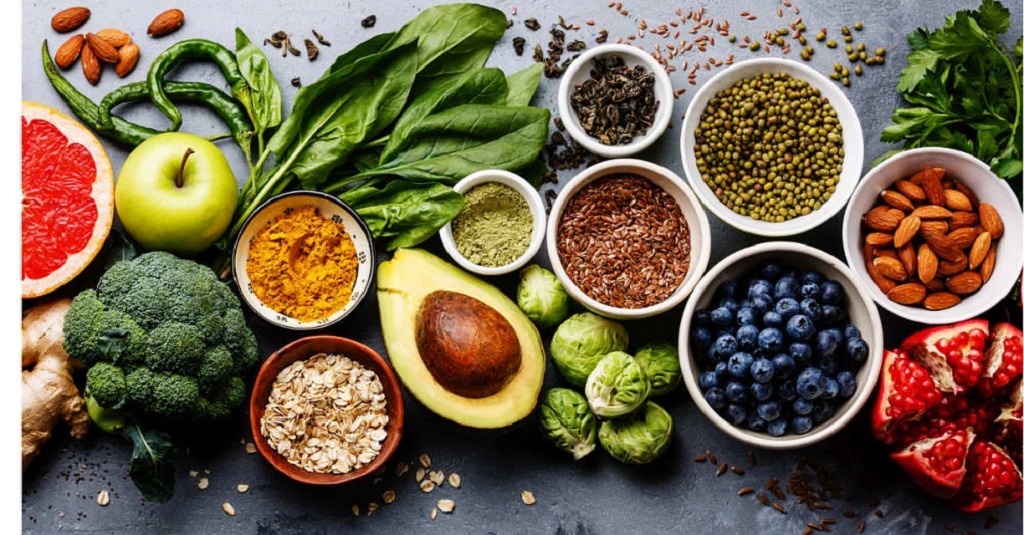In the ever-evolving world of nutrition, “superfoods” and trendy diets often take center stage. But with so much conflicting information available, it can be confusing to separate fact from fad. This guide explores the science behind superfoods and popular diets, helping you make informed decisions about your health and well-being.
Superfoods: Nutrient Powerhouses or Marketing Buzzword?
The term “superfood” isn’t a scientific classification; it’s more of a marketing term used to highlight foods with a high concentration of certain nutrients. While some superfoods do pack a powerful nutritional punch, it’s important to remember:
-
No Single Superfood: There’s no single food that holds the key to perfect health. A balanced diet incorporating a variety of nutrient-rich foods is essential.
-
Focus on Overall Diet: Don’t rely solely on superfoods to improve your health. Focus on creating a well-rounded diet that includes plenty of fruits, vegetables, whole grains, lean protein, and healthy fats.
Exploring Some Popular Superfoods and Their Potential Benefits:
-
Berries: Rich in antioxidants and vitamin C, berries may offer benefits for heart health, brain function, and immune support.
-
Green Leafy Vegetables: Packed with vitamins, minerals, and antioxidants, leafy greens like kale and spinach are linked to reduced risk of chronic diseases like heart disease and diabetes.
-
Fatty Fish: Salmon, sardines, and mackerel are excellent sources of omega-3 fatty acids, which are crucial for brain health, heart health, and reducing inflammation.
-
Nuts and Seeds: These nutrient-dense powerhouses are good sources of healthy fats, protein, fiber, and various vitamins and minerals. They can contribute to improved heart health, blood sugar control, and feelings of satiety.
-
Cruciferous Vegetables: Broccoli, cauliflower, and Brussels sprouts contain beneficial plant compounds like sulforaphane, which may have anti-cancer properties.
Popular Diets: Weighing the Pros and Cons
Many popular diets promise quick weight loss or miraculous health benefits. However, it’s essential to approach these claims with a critical eye:
-
Fad Diets vs. Sustainable Approaches: Many fad diets are restrictive and difficult to maintain in the long term. Sustainable dietary changes that promote healthy eating habits are more effective for lasting weight management and overall well-being.
-
Focusing on Macronutrients: Most diets fall into categories based on their macronutrient (carbs, protein, fat) ratios. Understanding your individual needs and preferences is crucial for choosing a suitable approach.
Exploring Some Popular Diets and Their Considerations:
-
Mediterranean Diet: This heart-healthy diet emphasizes fruits, vegetables, whole grains, legumes, and healthy fats like olive oil, with moderate portions of fish, poultry, and dairy. The Mediterranean diet is linked to numerous health benefits, including weight management, reduced heart disease risk, and improved cognitive function.
-
DASH Diet: Designed to help control blood pressure, the DASH diet focuses on fruits, vegetables, whole grains, low-fat dairy products, and lean protein sources, with limited unhealthy fats, added sugars, and sodium.
-
Intermittent Fasting: This approach involves cycling between periods of eating and fasting. There are various intermittent fasting protocols, and while research suggests potential benefits for weight management and metabolic health, it’s not suitable for everyone. Consulting a doctor before starting is crucial.
-
Plant-Based Diets: Vegetarian and vegan diets can be healthy and promote weight management, but careful planning is essential to ensure you’re getting all the necessary nutrients.

Finding the Right Approach for You: Personalized Nutrition
The ideal diet isn’t a one-size-fits-all solution. Several factors influence your nutritional needs, including your age, activity level, health conditions, and personal preferences.
-
Consult a Healthcare Professional: Consulting a registered dietitian or healthcare professional can help you design a personalized eating plan that aligns with your goals and health needs.
-
Focus on Balance and Moderation: A balanced and sustainable approach is key. Enjoy a variety of nutrient-rich foods, practice mindful eating, and incorporate physical activity into your routine for optimal health.
Beyond the Hype: Building Sustainable Habits
Don’t get caught up in the hype of superfoods or quick-fix diets. Focus on building sustainable habits that promote long-term health and well-being:
-
Cook More at Home: Cooking at home allows you to control the ingredients and portion sizes, ensuring healthier choices.
-
Read Food Labels: Pay attention to ingredient lists and nutrition labels to make informed choices about the food you consume.
-
Prioritize Whole Foods: Focus on consuming whole, unprocessed foods like fruits, vegetables, whole grains, and lean protein sources. These foods provide essential nutrients your body needs to function optimally.
-
Mindful Eating: Practice mindful eating by paying attention to hunger and fullness cues. Eat slowly, savor your food, and avoid distractions while eating.
-
Enjoyment Matters: Food should be enjoyable! Don’t deprive yourself of your favorite treats completely. Practice moderation and incorporate them into your diet in a balanced way.
Related: Easy Homemade Lilac Jelly Recipe
Conclusion: A Balanced Approach to Nutrition
Superfoods can be a valuable addition to a healthy diet, but they’re not a magic bullet for good health. Similarly, fad diets often fall short of long-term benefits. The key to optimal health lies in a balanced approach that prioritizes a variety of nutrient-rich foods, mindful eating habits, and regular physical activity. Consult a healthcare professional for guidance on creating a personalized nutrition plan that works best for you. Remember, a sustainable and enjoyable approach to healthy eating is the recipe for long-term success and a lifetime of well-being.





